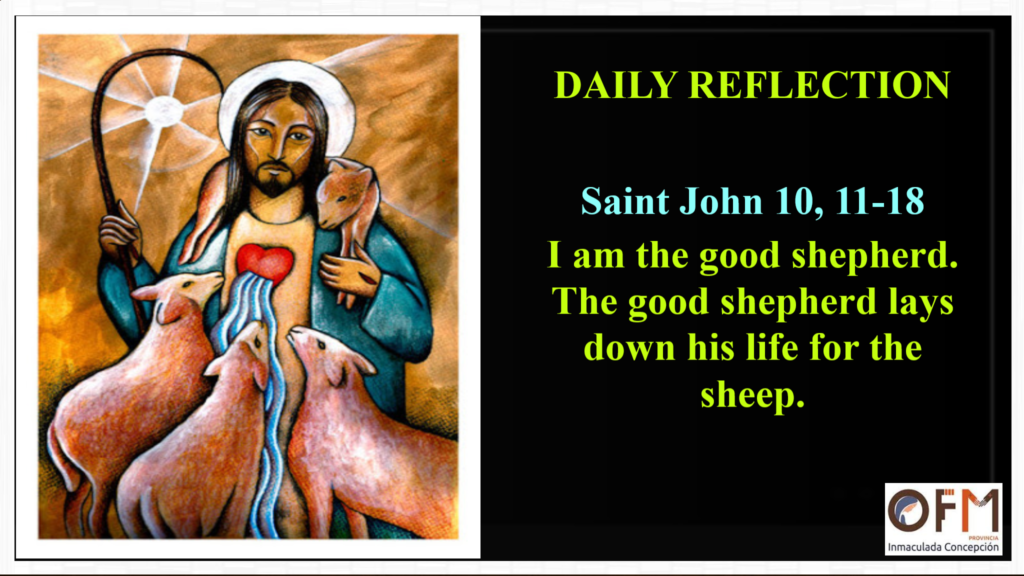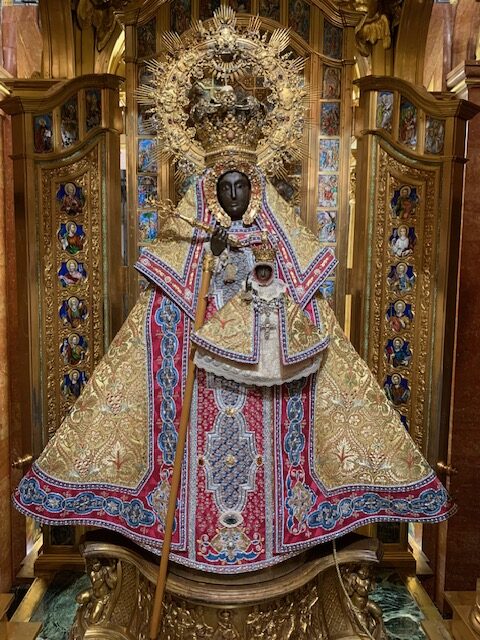
Peace and well
25/04/2021
IV SUNDAY OF EASTER
Gospel of saint John 10, 11-18
Jesus presents himself to us as «the good shepherd» and describes to us the qualities of a good shepherd, which are fully fulfilled in himself. Above all, «the good shepherd lays down his life for the sheep», as opposed to a «salaried» shepherd, who seeks above all his own security and good for him. And he does it voluntarily: «I give it up freely, nobody takes it away from me.»
Furthermore, Jesus, as a good shepherd, can say: «I know my sheep, and mine know me.» Finally, he affirms: «I have other sheep that are not of this fold: I also have to bring those … and there will be only one flock and only one Shepherd.»
Reflection
The image of a shepherd leading a flock of sheep may not be very familiar now to those of us who live in cities. But also the «urban» we can easily understand, without the need for us to frequently see herds that cross our streets or highways, what this comparison of those who have a certain authority supposes with that nice office of shepherd, which supposes to be a guide and defines the sheep. Above all, we can grasp why the image of the shepherd, and specifically the good shepherd, applies to Jesus.
Other texts of the day also affect the same theme of Christ as the Good Shepherd. The collective prayer asks that «the weak flock of your Son have a part in the admirable victory of his Shepherd»; the antiphon of the alleluia already anticipates the content of the gospel: «I am the Good Shepherd, I know my sheep and mine know me»; the communion antiphon affirms that «the Good Shepherd has risen, who gave his life for his sheep and deigned to die for his flock»; the post-communion calls God the Father Shepherd: «Good Shepherd … make the flock acquired by the blood of your Son enjoy…».
It may also be that we do not like the simile of the shepherd and the sheep, especially if we look at the «flock» and that all the sheep «follow» him. It would seem as if a paternalistic and gregarious vision of the ec1esial community is favored. Certainly, it is not Christ’s intention that pejorative tone of the «flock» and the following, because he describes the shepherd with clearly personalistic traits and respect for each one’s freedom.
For this reason, a good shepherd feels like a «missionary» also for the most remote and seeks the unity of all: like Jesus, who shows his desire that everyone hear his voice and form «a single flock under a single shepherd».
We can apply this not only in the sphere of relations between Christian confessions – ecumenism – but also on a more domestic and internal level, because every Christian community needs a climate of brotherhood and unity, so that the life of faith of its members and also for its missionary work to be effective outward. A good shepherd is also interested in «the other sheep», not only in the group of «addicts». He feels like a missionary and also open to those who are further away.
Fr. Antony Majeesh George Kallely, OFM.










